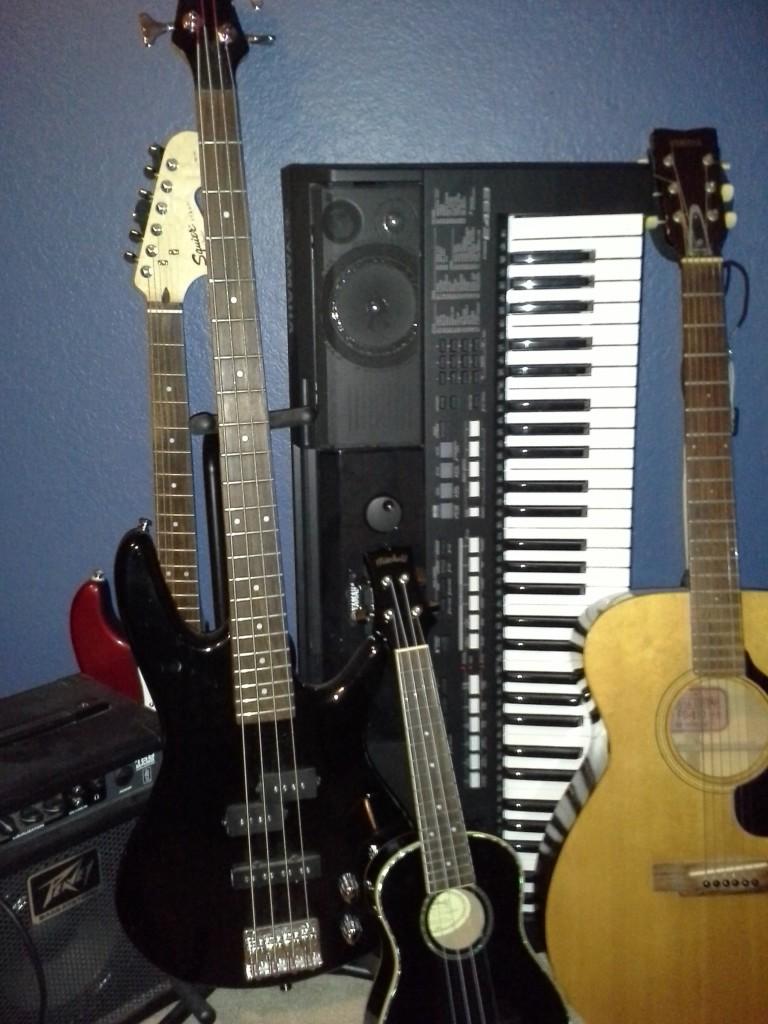Both acoustic and electric instruments fulfill important niches in music. But the question is, which one is better? Is there even a “better”? It’s a matter of opinion, what music you play, and how you play. Within almost every type of instrument there is an acoustic with electric counterpart, each serving its own purpose and providing its own sound. With this in mind, three of my personal favorites are the acoustic guitar, electric bass guitar, and keyboard.
The acoustic guitars have always been favored over electric ones for their more natural sound. Compared to an electric guitar, the sound that resonates when strummed has more depth and is more vibrant. It’s an overall more pleasing sound to the ear, free of distortion. They can even be used to keep rhythm much more effectively than an electric. Also, the acoustic guitar requires no external power source; it is ready to play wherever you may have it. However, the electric guitar is a better choice for more metallic or techno music. The acoustic could not pull off such magnificent solos so quickly and brilliantly, like it could in more relaxed genres.
Just like the acoustic guitar, the electric bass possesses a superior output of sound compared to its counterpart. In this case, the electric instrument produces a cleaner and lower tone. The problem with acoustic bass guitar is that it rattles its low tone when played, something that can be fixed with the pickups and amp settings for an electric bass. As far as portability goes, the electric bass is going to require a bulky amp, but the instrument itself is much slimmer than the acoustic. Because the electric bass is used for the bass notes in a song, it fits in almost any genre of music, and is far more commonly seen than the acoustic bass in a performance.
Keyboards are unique, in the sense that their acoustic counterpart is the grand piano, and that a keyboard (or synthesizer) can mimic the sound of almost any instrument, including the grand piano. Along with it’s portable grand setting, it contains various distortion nobes and pitch wheels that can modify any sound that the keyboard is currently set to. This gives it a wide range of genres it can fill in, and is a significantly smaller, and much more portable device. However, it also sacrifices two octaves of keys, one low and one high. Unlike electric string instruments, the keyboard requires no amp, but rather a nine volt adapter and power outlet, keeping with its portability. With the sounds it can produce, and the portability, it is the favored instrument when traveling and performing. Even with its vast library of sounds and portability, it does not hold the ability to produce the loud, layered, and natural sounds sustained by a grand piano.
In the end, both electric and acoustic instruments have their benefits and restrictions. It’s all a matter of what kind of music you enjoy playing and how you play it.








